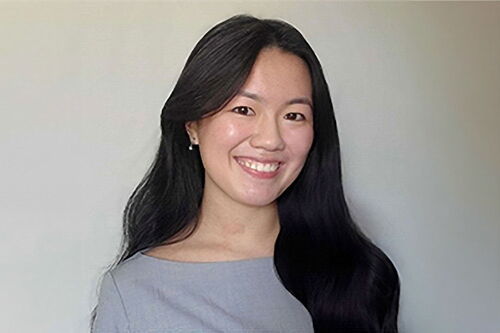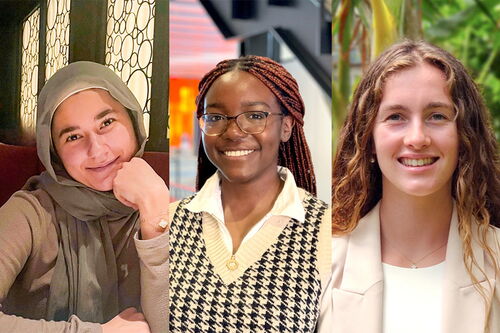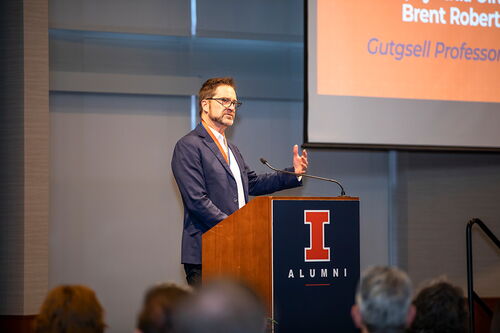Wendy Heller named Marjorie Roberts Professor in Liberal Arts and Sciences
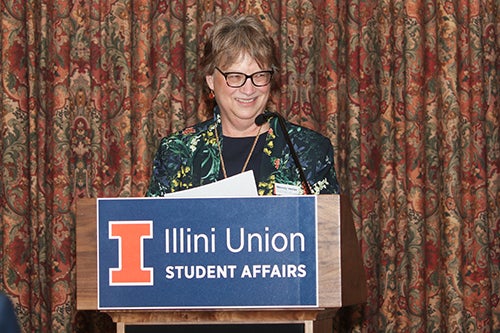
One day when she was a girl Wendy Heller got on her bicycle to go to school. The next thing she knew she was on the ground, her mangled bicycle beside her, and a stranger was asking if she was okay. Heller had no recollection of what happened, but it was the start of a fascinating journey into the many things that affect the mind.
“This was very, very disturbing but it was also very, very interesting,” she explained at a recent ceremony honoring her as the Marjorie Roberts Professor in Liberal Arts and Sciences. “This experience of amnesia taught me early on that your apparently seamless continuity of experience can be interrupted.”
Heller went on to major in psychology at the University of Pennsylvania. As she worked through her own learning disabilities and anxiety, Heller pursued psychological studies within those very fields. She went on to earn a doctoral degree from the University of Chicago.
Now a psychology professor at U of I and a licensed psychologist, Heller’s research focuses on understanding the impact of anxiety and depression on cognition and emotion. She has broken ground on understanding different types of anxiety that have unique associations with cognitive function and dysfunction.
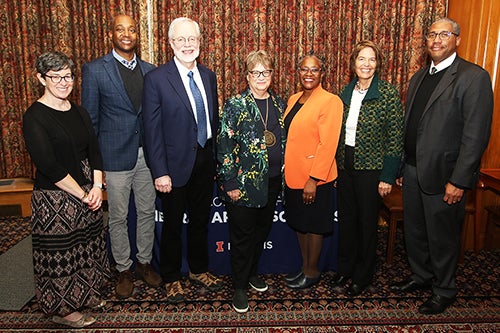
The Marjorie Roberts professorship is made possible by a gift from Marjorie Roberts, from the U of I Class of 1924. Roberts dedicated part of her estate to the College of LAS to support faculty members who demonstrate work that fosters inclusivity, excellence, and community.
Heller, who also serves as executive associate dean of social and behavioral sciences and area centers for the College of LAS, is a faculty affiliate of the Neuroscience Program, the Beckman Institute for Advanced Science and Technology, Carle Illinois College of Medicine, and the Institute for Sustainability, Energy, and Environment. She is also a fellow of the Association for Psychological Science.
Jamelle Sharpe, dean of the College of Law, spoke at the ceremony and commended Heller’s work ethic as well as her work as a leading member of the campus Diversity Realized by Visioning Excellence (DRIVE) committee.
“Do you have more time in the day than everyone else?” Sharpe joked.
Kevin Jackson, vice provost for undergraduate education at the U of I, praised Heller’s devotion to helping students from all walks of life. He called her a “champion of inclusivity at the university and beyond.”
Rebecca Silton (PhD, ’09, psychology), a professor of psychology at Loyola University, attended the ceremony and recalled how Heller served as her advisor when she was a graduate student at the U of I. They later became close friends, which became apparent during a trying time in Silton’s life.
Before her career as a professor, Silton completed her clinical post-doctoral training in neuropsychology at Seattle Children’s Hospital where she worked with children with brain and spinal cord tumors. It was an unfortunate irony that, after she earned her PhD and moved to Chicago in 2010, Silton’s son, Eli, was diagnosed with a spinal cord tumor before his first birthday.
Silton recalled how Heller and her wife and daughter came up to Chicago to support Silton and her son, who is now a healthy 13-year-old.
“I took great comfort when Wendy declared that Eli had clearly been born to the right mother,” Silton said. “Wendy intuitively knew that these were the words I needed to hear.”
As Heller explained later in the ceremony, “Without my students, my work would be hollow.”
Heller’s fascination with science and psychology has intersected with a strong sense of social justice and inclusivity. She expressed appreciation for her parents, who were both heavily involved in the civil rights movement, and also for her upbringing in an integrated community where children played and visited each other’s homes without inhibition, regardless of race or background.
“That’s what really inspired me,” Heller said. As she moved into adulthood Heller found herself wanting to advocate on behalf of diversity and inclusivity. She explained that her own journey as a gay woman has not been easy but that she has found great satisfaction in helping create meaningful changes in attitudes toward inclusivity.
“Between growing up in that environment, coming out as gay at a time where it was much more stigmatized, having a hidden learning disability, and being a woman in what was then a very male-dominated field, I ended up being sensitive to issues of inclusion and access,” Heller said. “And my work over the years to promote diversity and inclusion on this campus has brought me many great friends and many hours of rewarding interactions with like-minded people.”






